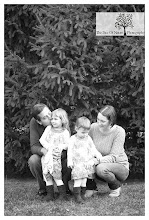David Grossman's Smile of the Lamb is a difficult book to get into, but once you internalize its rhythms, it becomes difficult to put it down. Because of its difficulty level and subject matter, Smile of the Lamb would only be appropriate for upper-level honors courses or post-secondary classes. Each chapter is a stream-of-consciousness glimpse into the mind of one of four main characters: Uri, his wife Sosh, his friend Katzman, and the outcast storyteller Khilmi. The first three are nonpracticing Israeli Jews, but Khilmi is an Arab storyteller. Uri and Katzman are soldiers helping with the Israeli occupation of Khilmi's Palestine.
As the story unfolds, it becomes obvious that the connection between the four runs deeper than the conflict that brings them all together. This is a book about the fluidity of reality, a treatise on the foggy boundary between fact, fiction, and lies. As Arabic phrase kan-ya-ma-kan, meaning "once upon a time," is repeated time and time again, the reader learns that there is not one reliable narrator among them.
It would take a lot of work to teach this book, but it would be worth it. The cloudiness of truth in The Smile of the Lamb reminds me of O'Brien's The Things They Carried and I think it would be interesting to compare these two books as each is also about a war.
Other themes include infidelity (Katzman and Shosh have an affair), the meaning of love, and the Israeli/Palestinian conflict (Grossman's characters on both sides of the conflict find the Israeli occupation of Palestine to be an injustice). Students would need to have an understanding of the history of the conflict in order to fully understand the references to the wars. They would also need to have a basic Arabic translation guide (I found Google Translator to work well for the circumstances), as the Arabic phrases are sometimes left untranslated. If I were to teach this book, I would heavily scaffold the first four to eight chapters, as the narrators rotate and very few clues are given as to which character is speaking. I would also have students keep a running list of the "truths" of the novel, the subplots and storylines, so that they could see how they weave together and blur into and out of reality.
The Smile of the Lamb does not have the most satisfactory ending, but that is part of its charm. This is a book that I will continue to think about over the next days or weeks, and I'm sure that students who are properly prepared and scaffolded will also have this reaction.
Subscribe to:
Post Comments (Atom)

No comments:
Post a Comment